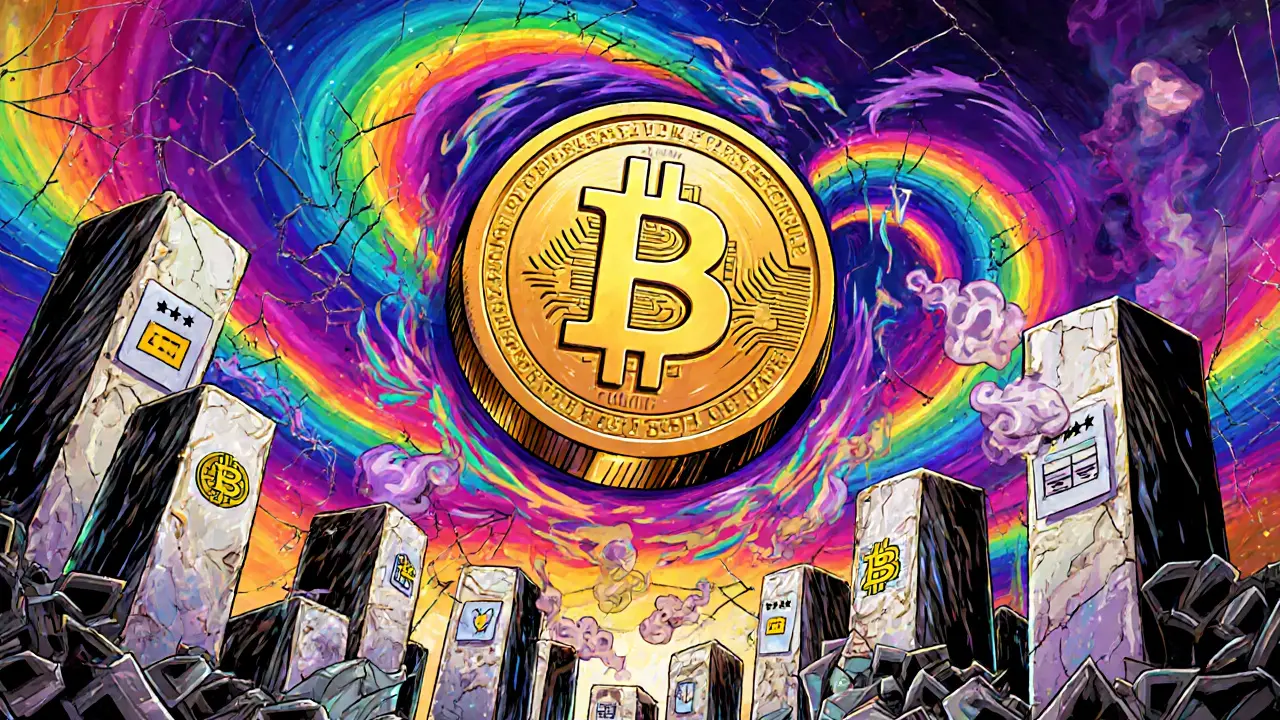ELCASH crypto: What it is, where it stands, and what you need to know
When you hear ELCASH crypto, a low-profile cryptocurrency with minimal public documentation and no verified development team. Also known as ELCASH token, it appears on a few obscure trackers but lacks listings on major exchanges like Binance or Coinbase. Unlike projects with whitepapers, active GitHub repos, or community forums, ELCASH crypto doesn’t seem to have a clear purpose. There’s no official website, no team bio, and no roadmap. It’s not a meme coin with viral energy, nor is it a utility token tied to a working app. It’s just a token name floating in the blockchain noise.
People sometimes confuse ELCASH crypto with other tokens that sound similar—like ETC (Ethereum Classic) or even cash-based reward systems in gaming apps. But ELCASH crypto doesn’t connect to any known ecosystem. It doesn’t power a DeFi protocol, isn’t part of a play-to-earn game, and hasn’t been tied to any real-world asset tokenization like RWA or tokenized gold. It’s not listed on CoinMarketCap or CoinGecko as a live asset, and search results mostly point to dead links or scam forums. Even in places where crypto regulation is loose, like some parts of Southeast Asia, ELCASH crypto doesn’t show up in local exchange listings or wallet integrations.
Some users claim there was an ELCASH airdrop, a free token distribution that never materialized as a verified event. Also known as ELCASH token distribution, it’s often promoted on Telegram groups with fake screenshots and promises of quick gains. But if you check the wallet addresses involved, they’re either empty or linked to known phishing contracts. No legitimate project would hand out tokens without a claim portal, smart contract audit, or community verification. The absence of these basics is a red flag.
What about the price? There are sites that show ELCASH crypto trading at fractions of a cent—but those aren’t real markets. They’re fake order books generated by bots to trick new investors into thinking there’s demand. Real liquidity means people are actually buying and selling. ELCASH crypto has none. If you try to sell it, you won’t find a buyer. If you try to buy it, you risk sending funds to a contract that just drains your wallet.
There’s no regulatory status for ELCASH crypto because no authority has ever reviewed it. It’s not banned—it’s just ignored. Unlike Vatan or LakeViewMeta, which at least had fake websites and claimed metaverse ambitions, ELCASH crypto doesn’t even try to build a story. It’s not a failed project. It’s barely a project at all.
So why does it still show up in searches? Because crypto scams rely on name recognition. Scammers copy names from old forums, reuse abandoned token symbols, and hope someone clicks. If you’re wondering whether ELCASH crypto is worth your time, the answer is simple: it’s not. You won’t find guides on how to stake it, trade it, or use it. You won’t find reviews from real users. And you definitely won’t find anyone who’s made money from it—because no one has.
Below, you’ll find posts that cover real crypto projects, scams to avoid, and how to spot the difference. ELCASH crypto doesn’t belong in that conversation. But knowing why it doesn’t belong? That’s valuable.
What is Electric Cash (ELCASH) Crypto Coin? The Full Story
Electric Cash (ELCASH) was launched as a fast, community-governed crypto, but today it's nearly dead. With a 99.9% price crash, no development, and no support, it's not usable or investable.
